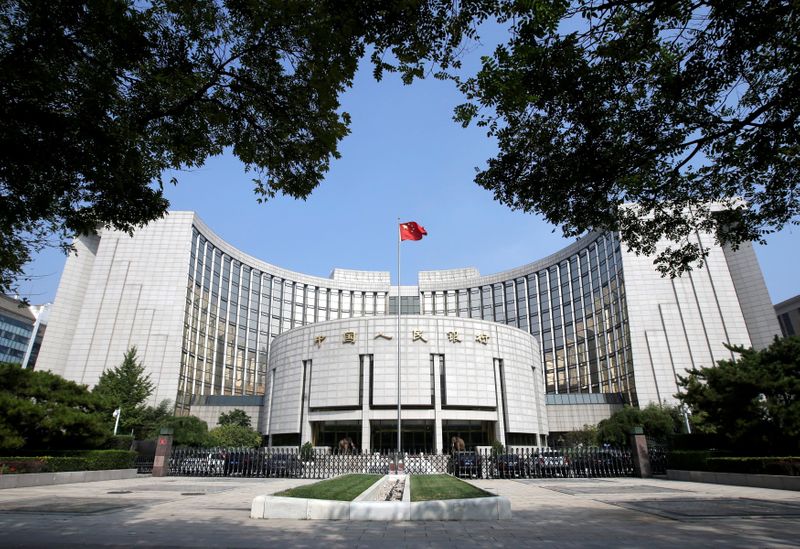BEIJING (Reuters) -China’s central bank on Friday said that non-bank payment firms must report plans for overseas initial public offerings and other major events, the latest move in a widespread regulatory squeeze on the country’s tech firms.
The shifting regulations first scuttled a $37 billion listing planned by Alibaba fintech affiliate Ant Group late last year and extended to ride-hailing giant Didi Global earlier this month, just days after its New York Stock Exchange debut.
Non-bank payment firms should report both domestic and overseas listing plans, the People’s Bank of China (PBOC) said in a statement.
The requirement applies to payment firms with a variable interest entity (VIE) structure, which has been widely adopted by internet companies and allows them to bypass the lengthy domestic listing process and raise funds overseas.
Payment firms should also explain the “detailed arrangement” of their VIE structures if seeking an overseas listing, it said.
In addition, they should report data breaches which involve more than 500 clients or 5,000 sets of clients’ data, or investments of more than 5% of its total net assets.
China’s cabinet said on July 6 that it would strengthen supervision of all Chinese firms listed offshore, broadening a clamp-down on its large “platform economy”.
Following suit, China’s cyberspace regulator said later the same week that any company with data for more than 1 million users must undergo a security review before listing its shares overseas.
China’s online payments ecosystem is dominated by Ant’s Alipay and Tencent Holdings’ WeChat Pay.
(Reporting by Cheng Leng, Stella Qiu and Ryan Woo; Editing by David Goodman, Kirsten Donovan)



















